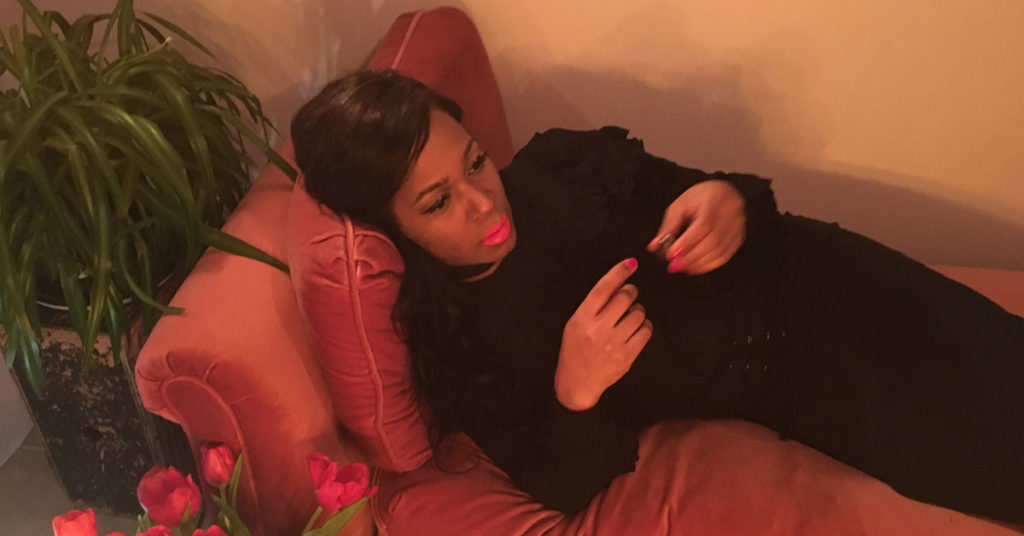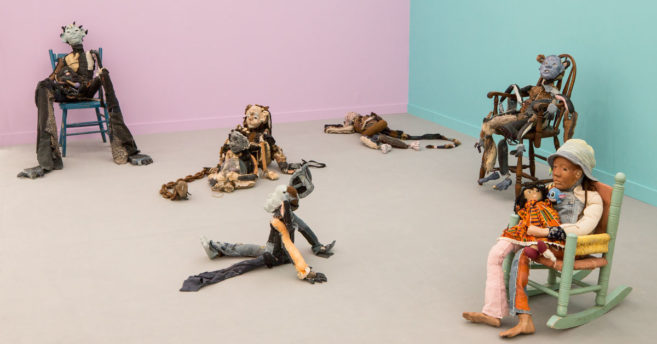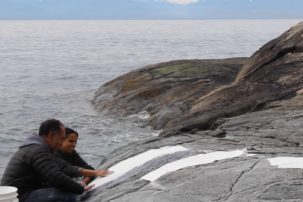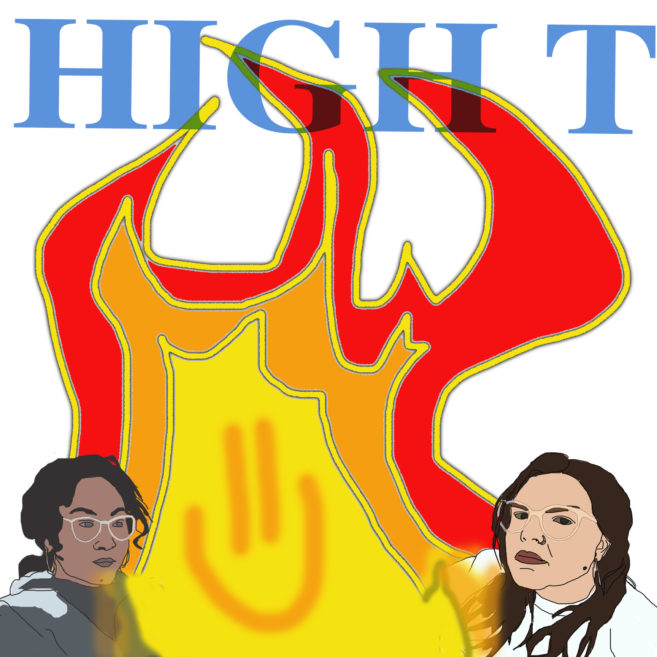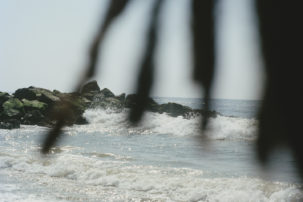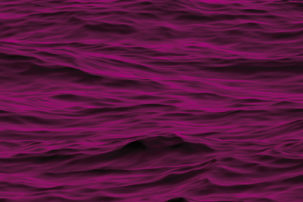I first encountered Ellise Barbara–who’s been a part of the Montreal music scene for over a decade–on Instagram. I’m not sure if we had mutual friends or she popped up as one of those suggestions based on what you already like. I asked her about it later and she said, “My Instagram is all Black. It’s important for me to have one all-Black virtual space.” This idea of Black space resonates throughout our conversation, through both her relationship to other Black people like the all-Black band she created called Elle Barbara’s Black Space—and also the physical space she transformed for her recent two-night performance at Montreal’s MAI (Montréal, arts interculturels), “Elle’s Black Space Mission: An Afrodiasporic Odyssey.”
Elle’s Black Space Mission seems to straddle several art forms–part theatre, part music concert and part art performance–without reproducing any single one. A simple black spaceship structure onstage as animated by projected visuals that simulated deep-space travel and a soundscape that interspersed songs by the band with dreamlike narrative vignettes. The story is set in a distant future, in which Ellise is the commander of the TKBK Mission Team (aka the Black Space Band) which is tasked with travelling back to present-day Montreal. The team members travel on a ship that Malian astro-physicist Abdoulaye Diepkile made specifically for interstellar travel after he became “convinced that extraterrestrial intelligence had contacted humanity and that the record of that contact was hidden, encrypted in media throughout time.”
Yaniya Lee: What is “Elle’s Black Space Mission”? How did you come to do this at the MAI, in that context?
Ellise Barbara: I took a slight interest in shifting my practice towards different worlds, different realms. So when Michael Toppings asked me to do a show I thought, “Well, it’d be a shame for me to be in a black theatre box and not exploit that universe.” And so from there I decided to work upon ideas that would make it a spectacle, make it a bigger show, something more than you’d expect of a musical group. I wanted there to be a narrative and an element of performance, and there would be a physical or projected environment constructed around that narrative.
I contacted my friend James Goddard who is very well versed in sci-fi and we co-wrote it. I also got in touch with an artist friend of mine, Navid Navab, who’s done a lot of interactive multimedia projections work. From there, since I knew that we were going to record our voices, I decided to call on a friend of mine who works in sound design. She worked on Arrival, which won an Oscar. It ended up being a great, amazing team of people to work with.
YL: In some of your interviews, you talk about being fed up with music audiences. What has your audience been for this performance, and how does that feel?
EB: It’s been amazing, because the conversation between the audience and the artists is entirely different. In the independent music space, a lot of people have started going in order to socialize, so the art form in itself doesn’t have importance: it’s rather used as a context for people to meet up, chat and do whatever, to be part of a scene.
I’m fairly cynical about the art world as well–even though I’m not a part of it–but what I’ve observed by going to museums and to galleries is that the interaction with the art form presented is entirely different, insofar as people’s attention is called upon: people tend to be a bit more respectful of what is presented to them. I don’t know if it’s because these art spaces are less accessible, if it has something to do with social and financial accessibility.
YL: Are you a sci-fi fan?
EB: No, I’m not into sci-fi. In the talkback following one of the first of two performances we did at the MAI, someone commented that the first song in our set reminded them of David Bowie. It brought to mind a comment a friend of mine made last year when I was describing my project. They were like, “Oh, well, are you going for the Ziggy Stardust/David Bowie sort of thing?”
I’ve loved David Bowie’s versatility in music [but] what I get from Ziggy Startdust is that there’s this idea of youthful whiteness that feels alienated and that needs to transgress in order to feel validated in the world, and so it’s sort of like positioning yourself as an alien looking in, looking back onto planet earth. My idea with the EBSM show was different. What I do is more aligned in spirit, I would say, with the work of Parliament Funkadelic.
Parliament Funkadelic is a collective, a band that went from Parliament to Funkadelic, and whose list of musicians is quite remarkable. A lot of luminaries have come out of that and their expression has been rooted in conceptual Afrofuturism for the most part. They didn’t start it [though]. There’s been a long list, famously starting with Sun Ra. Although I’m sure there were others, perhaps less known, within the course of popular music history who’ve come forward like with concepts of Afrofuturism in their musical expression. Afrofuturist musical expression positions itself as being in looking out, looking out to a different possible future in order to imagine a better outcome for Black people.
So there’s this very simple idea of being out, looking in, which I find is mostly in line with whiteness and youthful whiteness and its obsession with transgression. Being in, looking out, is what I mostly associate with a lot of bands such as Parliament and so forth.
YL: The artist Kapwani Kiwanga does a live performance where she plays an anthropologist from the future who’s going to the past. There’s a lot of these narratives of Black people in the future coming back to our present to see what’s going on. What brought you to that particular narrative?
EB: Afrofuturism seems to be a trend nowadays, but that’s not what I was trying to do. When we agreed to do the show I said, “Well I’m going to be in a black theatre box and that sort of evokes outer space.” Being in a physically black environment conjures up ideas of emptiness or infinity, so that’s how I thought of outer space and I thought that it was interesting that that ironically sort of coincided with the fact that we are a band made up of Black musicians, that we are a black space. So that sort of happened organically.
I was having a conversation with James Goddard (who co-wrote the script) about how an artistic work that only involves Black characters can be sci-fi and not be Afrofuturist. Because of the times we’re in, I find myself in a social environment where there’s all these recurring buzzwords that are rooted in identity politics, which is quite contemporary. It wouldn’t have been possible for me to not implement some of those notions into the work that I did, and that’s how I find that the piece in itself is a take on Afrofuturism, but the band itself, and their music, is not.

